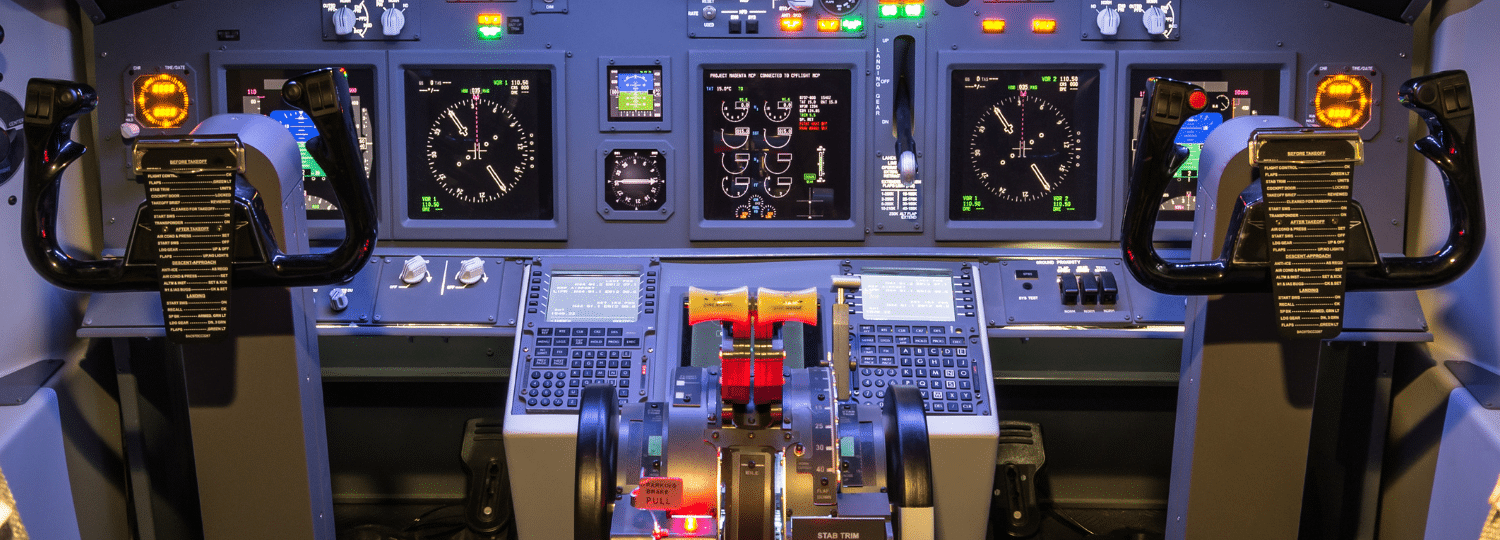The world of Aerospace Engineering is constantly ascending to new heights. From electrically propelled commercial jets to the challenges of a pilotless aircraft, staying on top of the latest trends will help you elevate your career. Triple Crown’s Director of Technical Programs and Systems Engineer, Brad Boekes, reflects on his 25+ years in the industry. He provides insight on how the industry has changed, where it’s going, and what skills and knowledge are needed to be successful as an Aerospace Engineer.
Changes In Aerospace
When it comes to changes in Aerospace, technology advances much faster than the industry can accommodate. Not much has changed with commercial airplanes. They continue to have a shelf life of 30+ years while maintaining safety regulations and updating their technology as needed. Newer technology is constantly evolving, making it more complex to implement and comply with safety standards. However, Aerospace companies can experiment with more advanced technology because their compliance and safety standards are less strict. In addition, many smaller Aerospace companies are often acquired by larger companies to obtain their cutting-edge technology.
According to Brad, the most useful and impactful advancement in the world of Aerospace has been the progression of the flight deck of the aircraft. Within the flight deck, Brad cites the evolution of the HUD, (Heads Up Display) as being the most impactful change that he has had personal involvement with. Pilots have seen a transition from mechanical and electromechanical displays to fully fledged “Heads Up” technology. This technology continues to advance, integrating into sunglasses as well as becoming compatible with Bluetooth Technology. Changes in the weight and material of an aircraft have also been a huge advancement in the world of Aerospace. A modern-day airplane is lighter than ever and can withstand the harshest of flying conditions. As these technologies continue to advance, commercial flights will become safer and more cost effective.
Industry Trends on The Horizon
Although self-piloting airplanes may never become available for commercial flight, the technology is currently used for unmanned “Air Taxis”. Air Taxis are in an early stage of development and will be used to transport cargo on a global scale. The Aerospace industry is also experimenting with “green energy”. Electrically propelled Air Taxis exist but are relatively unknown due to their lack of safety certifications. Although we are still years away, an electrically propelled commercial airplane is a strong possibility. In fact, a shift from jet fuel to electric propulsion will result in huge cost savings that will revolutionize the accessibility of commercial flight.
Soft Skills That Will Elevate Your Aerospace Career
In the world of Aerospace, there are many ways that you can increase your industry knowledge and differentiate yourself from your colleagues. There is no specific certification or standard for all Aerospace engineers to obtain. It’s important to narrow down what you want to specialize in. Figuring out what type of projects that you want to work on is critical in finding your purpose in engineering. Once you decide what to specialize in, take the appropriate steps to get certified to meet those requirements. Developing your soft skills is as important as acquiring a certification. You can start developing your soft skills by studying concepts such as Human Factors and Agile Methodology. This will allow you to become more efficient with your time, teaching you how to manage projects, and understanding how human beings interact with technology. According to Brad, an important yet underdeveloped skill for Aerospace Engineers is the usage of effective teamwork. Different perspectives, methodologies, and disagreements are vital in maximizing time when working on a project. Collaboration is the key to building a quality and high-functioning product. Brad also suggests reading and practicing the 7 Habits of Highly Effective People, a book written by Stephen Covey. These 7 habits are extremely beneficial and will help you excel not only in Aerospace, but in life in general.
Aerospace is a dynamic and constantly changing industry with new and exciting innovations. To increase your Aerospace knowledge, it’s important to understand where the industry has been and where it’s going. Alongside technical knowledge, Brad Boekes stresses the importance of effective teamwork, time management, and learning how to effectively interact with technology. If you are interested in learning about career options in Aerospace reach out to us at jobs@tripleco.com.

